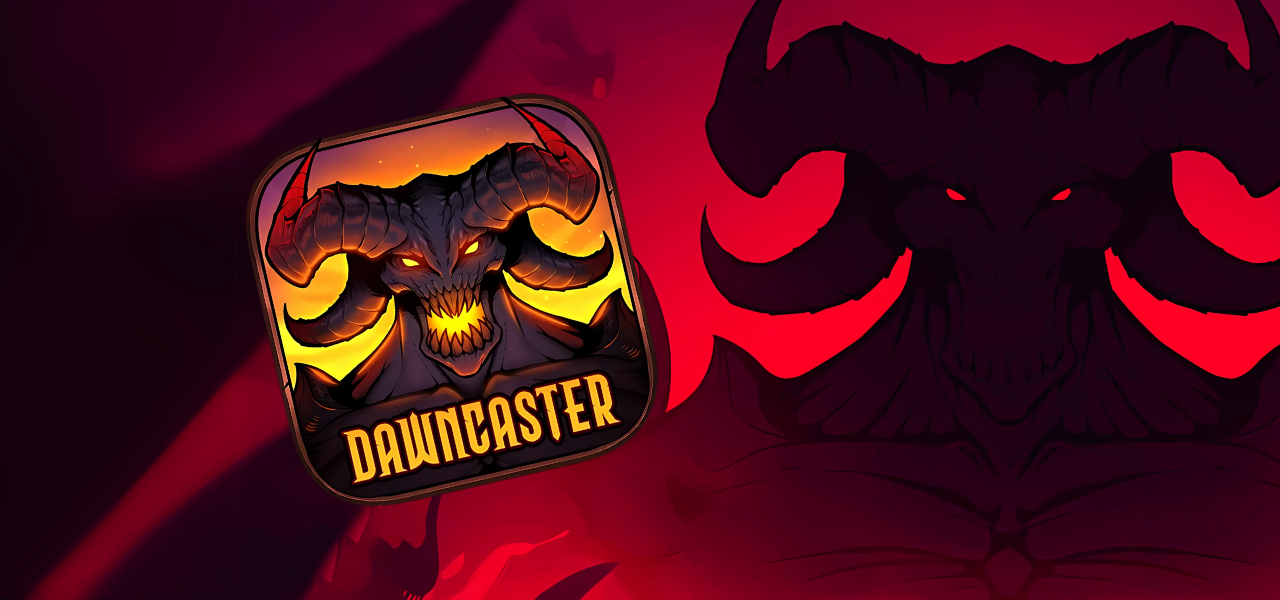Dawncaster – An Accessible Roguelike in Your Pocket
For a long time, accessible mobile gaming didn’t offer blind players much variety when it came to serious titles that could compete in gameplay and sound design with PC and console counterparts. Game releases were rare—mostly appearing on iOS—and Android users largely had to settle for text-based clickers and a handful of specialized audio games.
But recently, things have started to change for the better. More and more mobile developers have begun engaging with the blind gaming community, and adapting games for screen reader programs is slowly gaining momentum—though still cautiously.
One notable example of serious mobile gaming is Dawncaster, developed by Wanderlost.
This is the studio’s debut title, created by just two developers in under a year during the pandemic, as they experimented with different ideas. Since then, several major DLCs have been released, adding new cards, locations, and events to the game.
Storyline
While Dawncaster’s story may not be the most unique or complex, it provides a solid backdrop.
The game takes place in a fractured world where humans and demons coexist—until the demons decide that peaceful coexistence is the perfect excuse to begin raiding and pillaging human caravans. Naturally, humans don’t take this lightly and decide to retaliate. Even the gods seem to approve of the crusade against demonic forces, and rumors swirl of a chosen one destined to rise.
The call goes out across the world, summoning adventurers and warriors of light—and among them is our brave protagonist.
The narrative unfolds through text segments presented as you explore different locations.
Gameplay and Core Mechanics

Dawncaster’s gameplay centers around a turn-based card combat system, reminiscent of hits like Slay the Spire or Night of the Full Moon. However, the game has its own unique features that make it stand out within the genre.
Let’s go over the main gameplay mechanics:
- Deck Building and Development: Players start with a basic set of cards but can improve their deck over time by adding new cards or upgrading existing ones.
- Multiple Energy Types: There are different types of energy used to play cards. For example, Strength is used for cards with physical damage, while Magic powers spell and buff cards. These are just a few of the many card variations, and it’s much more exciting to explore them in-game.
- Character Classes: The class roster in Dawncaster is far from modest. Warrior, Mage, Rogue, Hunter—these are just a few of the options you can start your journey with. Currently, the game offers six highly diverse classes, each delivering a radically different gameplay experience.
Additionally, each run rewards players with Fate Shards, crystals that can be spent on permanent upgrades such as unlocking new weapons, increasing starting health, and more. - Gear and Upgrades: In addition to cards, players can find artifacts, weapons, and armor that enhance the character or provide passive bonuses.
- Procedurally Generated World: Every playthrough is unique, with random events, new enemies, and different resource placements.
- Path Choices: The world map offers various route options, which may lead to battles, treasure, or dangerous trials.
Combat System
Combat takes place in a turn-based format. Each round, players spend available energy to use cards. Effective resource management becomes key to victory—especially in boss battles, where a single mistake can be fatal.
Some cards are one-time use but grant powerful buffs, encouraging strategic planning. This mechanic is similar to card “burning” in Slay the Spire.
Accessibility in Dawncaster
Accessibility for screen readers is implemented via Unity’s accessibility plugin. Generally, the game requires screen readers to be turned off in order for in-game audio narration to function properly. However, with recent updates—at least on iOS—this is no longer necessary. Previously, if the screen reader wasn’t disabled, the game’s audio would stutter, but I haven’t encountered this issue anymore.
When it comes to reading out information, I have no complaints. All UI elements are properly narrated, response times are fast, and during battles, all essential information is delivered in a timely manner.
Sound Design and Music
It’s worth highlighting that Dawncaster excels in its audio presentation. The sound effects of played cards are clear and high-quality, while the music is rich and non-intrusive, enhancing the game’s atmosphere without becoming distracting.
Overall Impression of Dawncaster
Dawncaster is an excellent game for fans of card-based roguelikes. It impresses with deep tactical mechanics, an atmospheric world, high replay value, and a fair monetization model with no pay-to-win elements—everything you achieve is based on skill, which is a rarity in mobile gaming.
Despite minor drawbacks like event repetition and a limited storyline, the game offers many hours of engagement. It’s a great example of how indie developers can deliver quality products truly worthy of attention.
